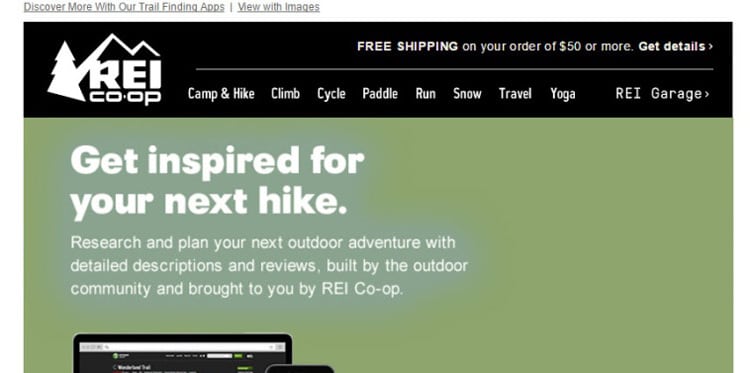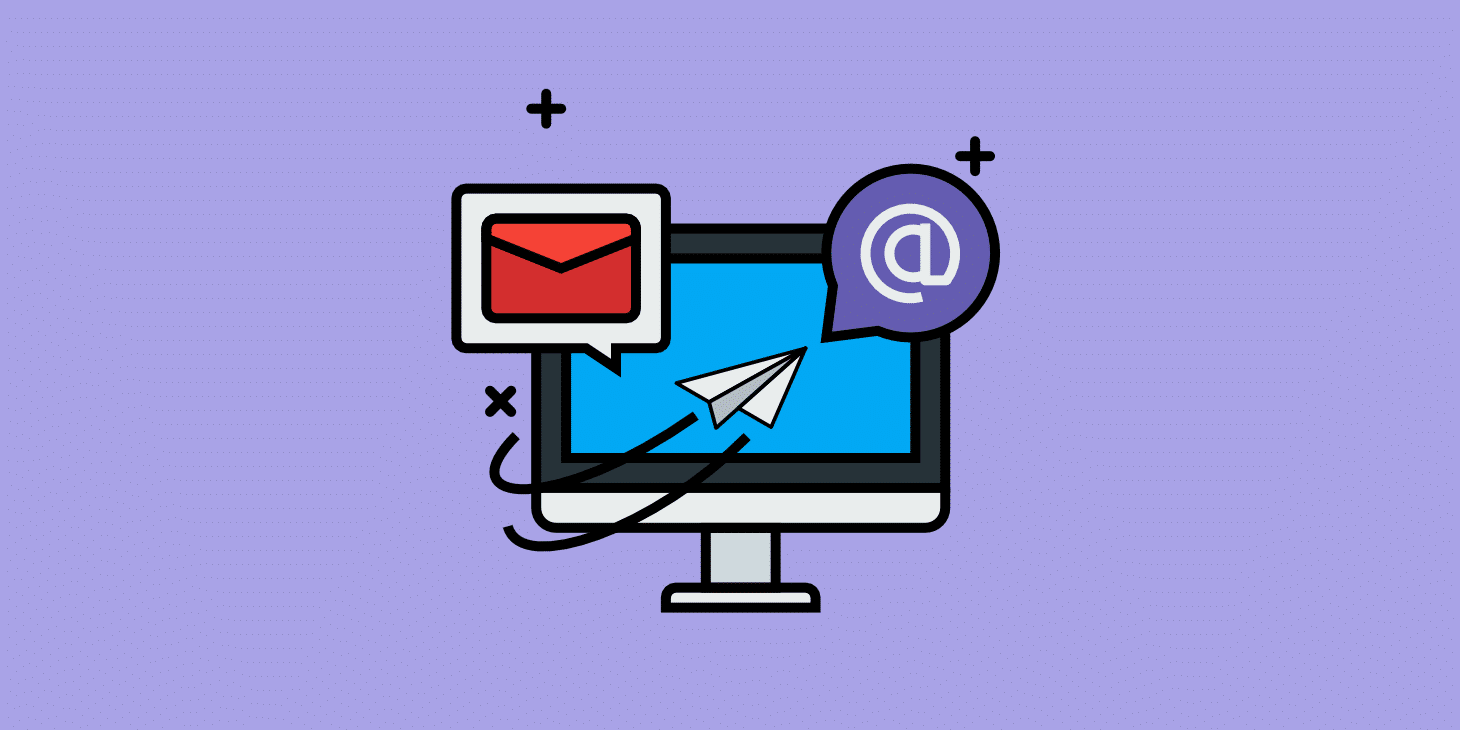When it comes to marketing, there are many different strategies you can choose for lead generation, branding or actually driving sales conversions. Hopefully, you already know what your goals are, whom you are addressing, who is your ideal customer, follower, business partner. What you don’t know right from the start is which channels of communication to choose in order to get the best out of your campaign.
The word-of-mouth strategy may work for a small local business, but when it comes to a comprehensive marketing strategy, you need to reach out to people who may not even know you are on the market.
There is one thing every marketer should know: while not all your potential customers are on social media or avid blog readers, pretty much all of them use their email regularly. Moreover, when it comes to B2B, email is still the quickest and most effective channel of communication for receiving and transmitting data. Therefore, email marketing can still be profitable and effective – should you know what are you doing and how to adapt your strategy to your audience.
Here are a few email marketing tips that I hope will be of help to my fellow marketers when conducting B2B marketing. But first, let’s talk a few things about this concept.
What is B2B marketing?
Business to business marketing or, B2B marketing as it is commonly known, involves the sale of one company’s products to other companies by meeting their needs. In order to better understand this concept, let’s say you have a weaving company. In order to reach out to your customers, you need to contact them and at the same time, market your business as a valuable and professional one.

Who are your clients? Well, you can sell raw materials directly, in your shop or other shops and I am sure that there are enough enthusiasts out there who prefer to buy raw materials and tailor their own clothes. However, you will sell more if you market your business to other businesses that depend on the types of goods you are producing. For instance, you can market your products to specialized companies that produce finished products out of your raw materials.
This is called a B2B marketing campaign. Here you can take a look at the major differences between B2B vs B2C marketing.
Why should every business create a viable B2B email marketing strategy?
I am sure that most of you are pondering on the above question. Why would I create a dedicated B2B email marketing strategy? What are the benefits, and how can such a strategy help my company – or the company I work for? Well, let’s take a look at some numbers shared by Vital Design.
1. According to their report, there are no less than 72% B2B buyers that are willing to share useful content via email. This means that your emails are not static, and they don’t just end up in a spam folder. If people from your targeted audience receive them, there is a good chance they will also share some of your content via email with other people from their “social cluster.” In other words, your emails will be forwarded, something similar to the shares you get on a social network.
2. For every dollar spent on an email marketing campaign, you get a return on investment of 44 dollars. This is a huge number, considering that other traditional marketing platforms cannot deliver such numbers. For instance, influencer marketing pays no more than 6.5 dollars for every dollar spent, a rate almost 7 times lower than what we can achieve with a successful email marketing campaign. This does not mean however that you should forget all other types of conducting marketing and branding. It means that email marketing should not be neglected and building your email list should be your top priority. It’s effective and as we are going to see in this article, easy to implement.
Tips for a successful B2B email marketing strategy
Now that we know email marketing is effective when it comes to B2B sales and B2B lead generation, let’s dive in a little further, and talk about some of the most important things you need to know before embarking on such a journey:
1. Think about your clients and understand the differences
B2B marketing, although somehow similar to direct marketing, it is not the same thing. The clients are behaving differently and they make different choices. In B2B marketing, you are addressing a more rational audience. How, come? Regular customers are sometimes less informed about what they are buying, they are susceptible to whims and recklessness.
On the other hand, business clients know right from the start what they need. They do not base their buying decisions on whims or indulgences. They are instead making rational decisions based on what they need and a good quality versus price ratio. As a consequence, when you address business clients, you need to take into account the fact that they are different and act differently than regular customers.
What kinds of customers should be addressed with B2B marketing?
- First, there are the companies that use your products in order to produce other goods. For example, a company that uses textile materials in order to produce T-shirts and other goods.
- Secondly, there are the companies that use your goods for office automation or other secondary tasks. For example, a company that buys computers, paper, or pens from you.
- Thirdly, there are the government agencies and the institutions (hospitals and schools) that may be targeted as potential consumers if your products match their needs. For instance, you can sell anything starting with computers and up to soap and toilet paper to such institutions.
- Finally, we have reseller companies that buy your products only to redistribute them to other customers. Here, we include local shops but also brokers and wholesalers.
Now that you know what B2B sales are and to whom you are addressing your offer, you can move on and create your first email newsletter. Here are some important things to look out for:
2. Pay attention to the email header
This is the most important visual aspect of your email campaign. If you want B2B sales, you need content suitable for your audience but first, you need to catch their attention somehow. This is what your banner needs to do.
Considering that the average office worker receives a number of 121 emails daily, you have just a few seconds to get them interested. This means that you need to transmit something, a clear message, right from the header section, the first thing your audience will notice when they open your email.

What do you need? Well, you need a clear vision of what your banner should look like, you need your logo to be visible so that your audience to be able to recognize you and you will also need a tool to generate and design that banner. You need to save time and at the same time, to deliver a professional look. In order to do that, I recommend you to use an online tool such as Bannersnack, a great choice for creating great looking email banners.
3. Content marketing starts with the title and the subject line
Think about your subject line especially, as if it is going to be the single line of text of your email. Why? When the email that was sent by you lands into your client’s inbox, the first thing he or she will notice is your subject line. You don’t get more than a few seconds to make them curious about your offer, and this is why you need to tell them everything they need to know right from there.
On the other hand, the title is also important, should you manage to get the client to open the email. The subject line will make your audience to click and open the email and as a consequence, the title should convince them to read the rest of your content. And don’t forget about little CTR tricks, such as adding an emoji. Out of the 5 emails below, which one below stands out to you? ?

4. Do not address your email to a CEO
Considering that your goal is to generate B2B sales and leads, you need to know that not all the decision making individuals from your targeted audience have the same roles in their companies. I know, on a first impulse, you will want to contact the CEOs from the companies you have targeted in your campaign but this is not always the best choice. Why?
Let’s say you want to sell office automation products. There are institutions that need these products but there are also big companies, the local shops, individual entrepreneurs and so on. There are different kinds of people who are in charge of supplying such goods to their companies.
They all have different educational backgrounds, different social statuses. You will address CEOs, business owners and maybe even their employees and this is why you need to create a message that will be easily understood by anybody.
5. Create your content
You have a header template, a subject and maybe a title for your newsletter. Now, it’s time to give your audience something of value to read. It’s time to create the content that will generate B2B sales and leads.
Things to consider at this point:
- Content is important even if you are only promoting products. In this case, the most valuable content will be the content descriptions you will write for your newsletter.
- Pick evergreen topics. If you want to add more to your email than simple product descriptions, think about creating some valuable evergreen and relevant contentfor your audience. The best pieces of text, in this case, are those who manage to answer questions, the tips & tricks articles and advice that your audience can apply in their own lives or businesses. It’s important to aim not only at gaining new customers but also at keeping the existing one interested, considering that it costs five times as much to attract a new customer than keep an existing one.
- Make sure the content is unique. People listen to different kinds of music because music makes them feel in a certain way. They buy specific brands of shoes for the same reasons. They choose things based on their ability to trigger some emotions or in any case, a rational thought that they need to buy them. Nothing differs when it comes to content. You need something unique, something to tell your audience that you did not only put an effort to this but also, that you have something of value to give them.
- Choose quality instead of quantity. You don’t need a novel to send a message. The length of your newsletter should not be a worry, as long as you remind yourself constantly that what you deliver should be of great quality and not of too much information. You can create very short email newsletters and still get a better ROI if your message is effective. Effectiveness, in this case, means that you should make your point in as few words as you can, that your texts and images are professionally composed and processed, that your style is properly adjusted for the type of audience you seek to convince to buy from you.
- Make the content easy to read. There a few people who like reading long articles or big blocks of texts, especially people who you are addressing here, people who receive many another email every day and don’t have time to pay attention to all of them. This is why you should make sure that your message is readable and comprehensible. Use headings and subheadings, bullet points and highlight the most important pieces of information. Use short sentences and paragraphs and make sure you have enough white spaces.
6. Select your delivering service
There are many ESPs (Email Service Providers) out there, and while many of them offer professional services, not all of them are good for you. You will need to conduct some research and evaluate yourself some of the most notable ESPs. My advice is for you to find a top list of the best services like this one or this another listand study each of the most reliable ESPs before settling for one or another.
7. Authenticating your domain
Winding up in the spam folder can drastically diminish your total number of email opens, which in turn affects the number of clicks back to your website. One way you can improve your opens and delivery rate is by authenticating your domain.
How much can email authentication impact you? Host SEO had a client move DNS providers and their newsletter was then immediately going to the spam folder for almost a month before anyone realized it. This was due to missing authentication records. By going straight to spam their open rate decreased by 4.79% from the previous month and their click rate decreased by 1.56%. That is why you don’t want to end up in the spam folder and why email authentication is important.

Conclusion
Email marketing has been proven over the years to be an effective marketing strategy, whether you are addressing individual customers or business customers. You can rely on email marketing in order to generate B2B sales, and this article was meant to shed some light on the most important steps you need to check on your list before starting your campaign.
What do you think about email B2B marketing? Did you try such a strategy and how successful were you? How many of these email marketing tips did you check on your list?






















